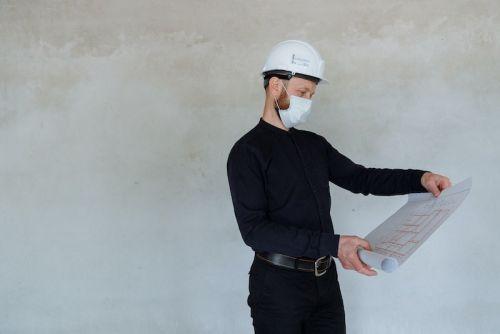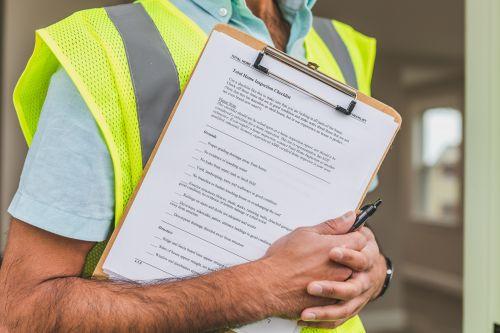Are you selling your property, thinking of buying your dream home, or about to become the owner of a new building? Whatever the case, working with a building inspector is essential.
Despite their key role in real estate transactions, the work of these specialists is often not well understood. Today, we’ll take a closer look at the important function they serve.
What is the role of a building inspector?
In simple terms, a building inspector is a specialist in property inspections. They are meticulous, multidisciplinary, versatile, rigorous, honest, and objective; those are just a few of the qualities that define them.
Specifically, building inspectors conduct a visual inspection of a property to assess the condition of its various components, including the structure, foundations, plumbing, roofing, electrical systems, and more.
Their job is to identify any defect, including hidden ones, and determine whether the property meets the standards of the Building Code.
Building inspectors are crucial professionals in real estate transactions, serving the interests of both buyers and sellers. For example, if defects are found, the seller will have the information needed to either fix the issues or adjust the asking price before listing the property. Meanwhile, the buyer gains valuable insights from the inspection report, enabling them to make an informed decision about purchasing the property.

When should you hire a building inspector?
There are various types of home inspectors specializing in different real estate sectors, including residential, commercial, and industrial properties. However, there are three main situations in which you should consider hiring a building inspector:
-
The pre-purchase inspection
-
The pre-acceptance inspection
Additionally, homeowners may choose to conduct a preventive inspection. Though less common, this type of inspection hiring a building inspector to assess the condition of their home even if they are not planning to sell.
The building inspection in two steps
As previously mentioned, building inspection are vital professionals in real estate transactions. Their role involved two distinct stages: the property inspection and the drafting of the inspection report. Let’s take a closer look at each of these steps.

First step: visual inspection of the property
Before conducting the visual inspection, the building inspector will review official documents related to the property. This helps them prepare for the inspection and get an initial understanding of the property.
On the day of the inspection, the inspector will visit the property to perform a detailed visual examination of the various components of the building, such as:
-
Flooring
-
Ceilings
-
Foundations
-
Roofing
-
Beams
-
Siding
-
Gutters
-
Heating and air conditioning systems
-
Plumbing
-
And more.
The inspector will assess the property from the top to bottom, evaluating its safety, integrity, and overall quality.
It’s important to note that significant preparation goes into this seemingly simple inspection. To carry it out effectively, the inspector must possess a wide range of up-to-date knowledge. Building inspection is a field that requires ongoing learning, as inspectors need to stay informed about the latest construction standards and practices.
Additionally, the inspector must have a deep understanding of the Building Code and safety regulations. By keeping up with industry changes, they are better equipped to evaluate the property comprehensively. After gathering all this information, the inspector will be ready to start drafting the inspection report.

Second step: drafting the inspection report
After completing the visual inspection of the property, the inspector must compile their findings into a detailed inspection report. To do this, they review their notes and the photos taken during the inspection. This helps ensure that the report is accurate, complete, and reflective of the property’s condition.
Writing the inspection report is not a simple task. In many ways, the success of the property’s sale, purchase, or handover depends on this document. Therefore, the inspector must be thorough, applying their expertise and analytical skills to produce a clear and comprehensive report.
The inspector’s goal is to provide their client with a detailed account that will guide them in making informed decisions about the next steps. Given the responsibility involved, drafting the inspection report is just as the inspection itself.
Are you looking for a building inspector?
XpertSource.com can help you in your efforts to find a building inspector. By telling us about your project, we will refer you to top-rated experts, free of charge! Simply fill out the form (it only takes 2 minutes) and you will be put in contact with the right experts.

